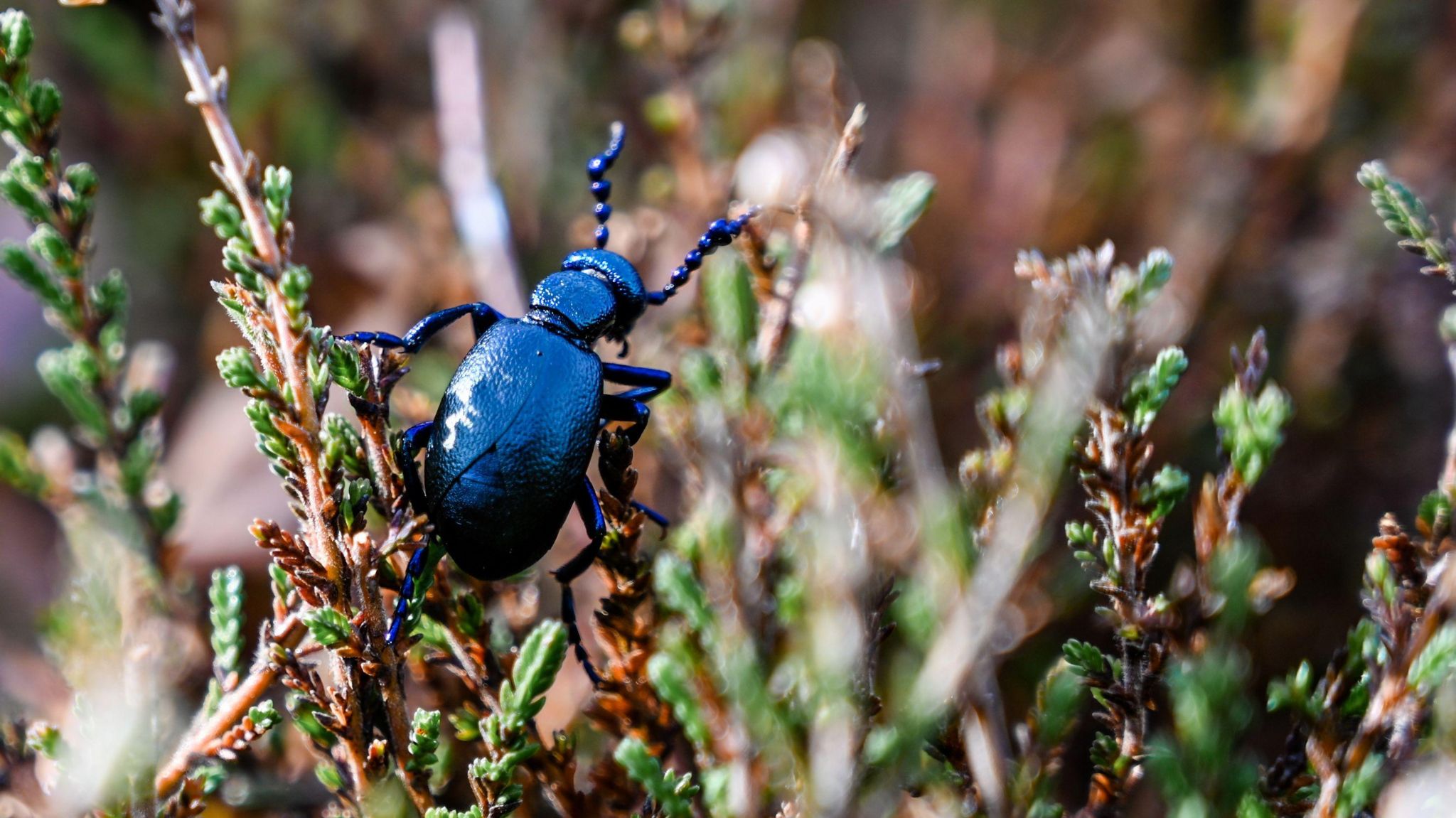Rare beetle sightings soar at conservation site

The population of the black oil beetle had declined in recent years
- Published
Sightings of a rare species of beetle have soared at a conservation site after efforts were made to improve their habitat.
The population of black oil beetle at Kinver Edge, Staffordshire, appears to have increased this spring, according to the National Trust.
The site near Stourbridge, Dudley, features a rare habitat of lowland heathland, characterised by wide open landscape and littered with trees and shrubs.
The National Trust, which manages the land, said the sandy soils there were ideal for invertebrates, including black oil beetles.
National Trust countryside manager Ewan Chapman said the beetles were first spotted in an area of restored heathland last year.
“This spring, they’ve spread throughout the landscape to make their home in areas of bare earth, which our team of rangers and volunteers create as part of their on-going management of this special habitat,” he said.
Mr Chapman added that while it was a good indicator that the conservation work was having an impact, the work needed to continue at pace.
Black oil beetles are usually found in heathland and wildflower meadows
Andy Perry, National Trust conservation advisor said oil beetles were dependent on ground nesting solitary bees, which feed on wildflowers.
But they had become rarer due to the loss of key habitats like heathland and wildflower meadows.
“The fact that the number of these rare beetles is rising, and they’re colonising more areas at Kinver, is testimony to the quality of habitat and health of wild bees at the site,” he added.
The black oil beetle is one of the five remaining species of oil beetles found in the UK, along with the violet oil beetle, short-necked oil beetle, rugged oil beetle and Mediterranean oil beetle.
They were identified as a priority through the UK Biodiversity Action Plan after their populations drastically declined as a result of changes in the way the countryside was managed.
Follow BBC West Midlands on Facebook, external, X, external and Instagram, external. Send your story ideas to: [email protected], external
- Published5 March 2023